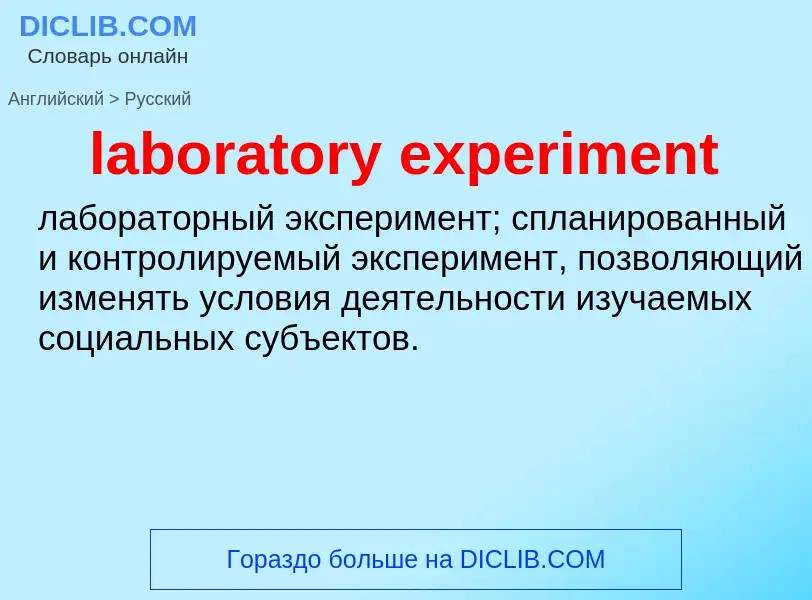Übersetzung und Analyse von Wörtern durch künstliche Intelligenz ChatGPT
Auf dieser Seite erhalten Sie eine detaillierte Analyse eines Wortes oder einer Phrase mithilfe der besten heute verfügbaren Technologie der künstlichen Intelligenz:
- wie das Wort verwendet wird
- Häufigkeit der Nutzung
- es wird häufiger in mündlicher oder schriftlicher Rede verwendet
- Wortübersetzungsoptionen
- Anwendungsbeispiele (mehrere Phrasen mit Übersetzung)
- Etymologie
laboratory experiment - Übersetzung nach russisch
[iksperimen'teiʃ(ə)n]
общая лексика
экспериментирование
экспериментаторство
Смотрите также
существительное
общая лексика
экспериментирование
проведение опытов
Definition
Wikipedia
An experiment is a procedure carried out to support or refute a hypothesis, or determine the efficacy or likelihood of something previously untried. Experiments provide insight into cause-and-effect by demonstrating what outcome occurs when a particular factor is manipulated. Experiments vary greatly in goal and scale but always rely on repeatable procedure and logical analysis of the results. There also exist natural experimental studies.
A child may carry out basic experiments to understand how things fall to the ground, while teams of scientists may take years of systematic investigation to advance their understanding of a phenomenon. Experiments and other types of hands-on activities are very important to student learning in the science classroom. Experiments can raise test scores and help a student become more engaged and interested in the material they are learning, especially when used over time. Experiments can vary from personal and informal natural comparisons (e.g. tasting a range of chocolates to find a favorite), to highly controlled (e.g. tests requiring complex apparatus overseen by many scientists that hope to discover information about subatomic particles). Uses of experiments vary considerably between the natural and human sciences.
Experiments typically include controls, which are designed to minimize the effects of variables other than the single independent variable. This increases the reliability of the results, often through a comparison between control measurements and the other measurements. Scientific controls are a part of the scientific method. Ideally, all variables in an experiment are controlled (accounted for by the control measurements) and none are uncontrolled. In such an experiment, if all controls work as expected, it is possible to conclude that the experiment works as intended, and that results are due to the effect of the tested variables.

![black box model]] for observation (input and output are ''observables''). When there are a [[feedback]] with some observer's control, as illustrated, the observation is also an experiment. black box model]] for observation (input and output are ''observables''). When there are a [[feedback]] with some observer's control, as illustrated, the observation is also an experiment.](https://commons.wikimedia.org/wiki/Special:FilePath/Blackbox3D-obs.png?width=200)

